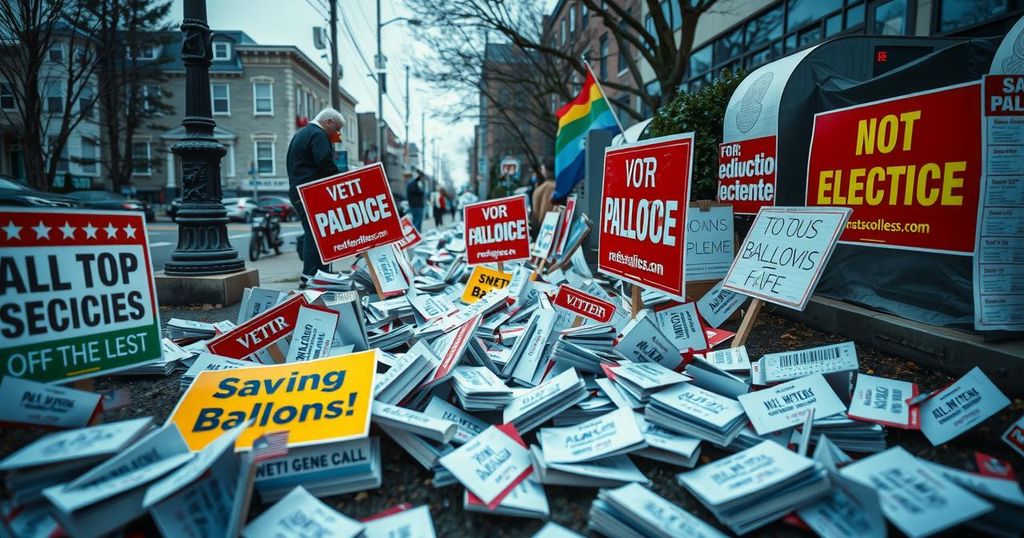Voters Reject Election Reform Proposals Amidst Overwhelming Opposition

Recent elections across the US saw voters reject various election reform initiatives, including ranked choice voting and open primaries, despite a funding push exceeding $100 million. Activists expressed surprise at the backlash, indicating a crucial moment of reflection for the movement as they reconsider their strategies to garner voter support.
In a significant electoral setback for the election reform movement, voters across numerous states in the United States decisively rejected proposed measures aimed at revamping voting procedures, including ranked choice voting and open primaries, despite an overwhelming financial push exceeding $100 million.
Activists from around the nation, believing they had gained traction with these reforms, were surprised by the negative response from voters in diverse states such as Arizona, Colorado, and Nevada. John Opdycke, president of Open Primaries, noted, “It turns out, in retrospect, we weren’t yet ready for prime time.”
Even though the reform proponents outspent their adversaries significantly, the election results indicated a stark preference among voters for traditional voting methods. Critics such as Trent England of Save Our States remarked, “While Americans are frustrated with politics, I think most Americans are just fine with the traditional way of voting.”
The unsuccessful initiatives aimed to implement open primary systems, allowing for all candidates to compete on a single ballot and enabling voters to rank candidates by preference under ranked choice voting. Supporters of these methods had previously seen success in Alaska but met challenges this year with voters reversing earlier decisions, signaling possible shifts in public sentiment.
Despite limited successful outcomes in jurisdictions that adopted ranked choice voting, research by FairVote highlighted a few cases where it was beneficial for preventing vote-splitting among similar candidates. Nonetheless, the widespread rejection of reforms raises questions about their future and support within the electorate.
In light of these outcomes, advocates plan to reevaluate their strategies, potentially focusing on smaller-scale changes or separating efforts to reform primary elections from those advocating for ranked choice voting. John Opdycke acknowledged, “I think there’s a deeper appreciation for the kind of brickwork, foundation-building, conversation creation that has to go on as a precursor of launching a formal campaign.”
The recent electoral defeats for various election reform measures across the United States highlight a significant moment in the ongoing discussions surrounding voting procedures. Advocates aimed to introduce alternative methods such as ranked choice voting, which allows voters to rank candidates by preference, and open primaries, which would enable candidates across party lines to appear on a single ballot. Despite strong financial backing and a perceived momentum following some previous successes, the reforms met considerable resistance during the recent elections, suggesting a possible disconnect between advocacy efforts and voter readiness to embrace change.
The rejection of state ballot initiatives aimed at reforming election procedures signifies a considerable challenge for advocates of alternative voting methods. While supporters had hoped to build on successful precedents, the election results revealed a preference among the electorate for traditional voting systems. The path forward for reform efforts may require a strategic reassessment, including grassroots engagement and a focus on incremental changes rather than sweeping amendments.
Original Source: apnews.com







